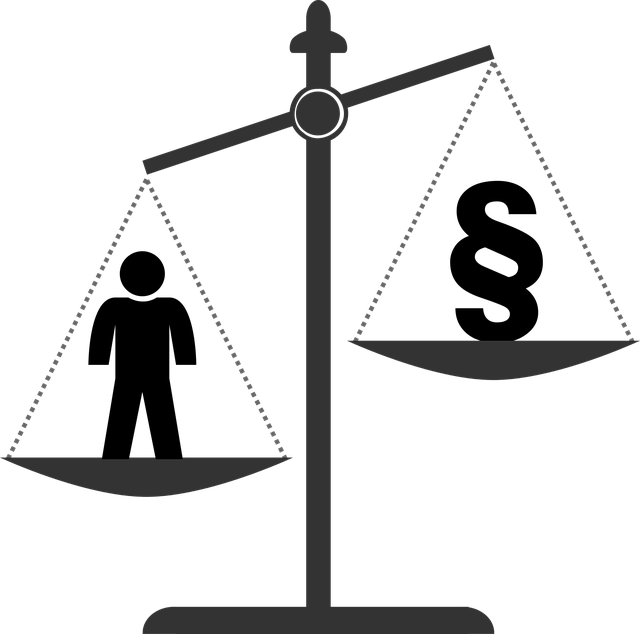Finance crime probes target a wide range of illegal activities, requiring advanced techniques for detection. Sentencing guidelines are vital for ensuring fairness and consistency in judgments, considering factors like loss amount, planning level, and mitigating circumstances. These guidelines influence risk management, compliance, and offender behavior, with the potential to deter misconduct and reduce recidivism. By balancing punishment and rehabilitation through fair sentencing practices, the criminal justice system promotes accountability and public trust, ultimately achieving a safer financial landscape. Understanding how sentencing guidelines affect penalties is key to meaningful change in financial crime investigations.
“Uncovering the intricate world of finance crime probes, this article delves into the multifaceted impact and prevention strategies. We explore the scope and implications, focusing on how sentencing guidelines shape penalties in financial crimes. By analyzing various sentencing levels, we uncover their effects on offenders and societal deterrence. Furthermore, we highlight the role of fair sentencing in enhancing accountability and its potential to revolutionize crime prevention efforts.”
- Understanding Finance Crime Probes: Uncovering the Scope and Impact
- The Role of Sentencing Guidelines in Financial Crime Punishment
- Analyzing the Effects of Different Sentencing Levels on Offenders
- Enhancing Accountability: How Fair Sentencing Can Deter Future Crimes
Understanding Finance Crime Probes: Uncovering the Scope and Impact

Finance crime probes encompass a wide range of investigations into illegal activities related to financial institutions and transactions. These probes delve into various offenses, from fraud and money laundering to embezzlement and securities violations. Understanding the scope involves recognizing that modern financial crimes are often complex, utilizing sophisticated methods to evade detection. As such, investigators must employ advanced techniques and technologies to unmask these schemes.
The impact of these probes is significant, not only in terms of holding criminals accountable but also in shaping sentencing guidelines. The consequences for convictions can be severe, especially in high-stakes cases where substantial financial gains or losses are involved. Sentencing guidelines play a crucial role in determining penalties, ensuring that justice is served and deterring future illicit activities. Achieving extraordinary results in these investigations demands expertise, strategic planning, and a deep understanding of the legal framework surrounding finance crimes.
The Role of Sentencing Guidelines in Financial Crime Punishment

Sentencing guidelines play a pivotal role in shaping the penalties for financial crimes, offering a structured framework to ensure fairness and consistency in judgments. These guidelines are designed to reflect the severity of various offenses, taking into account factors such as the amount of loss incurred, the level of planning involved, and any mitigating or aggravating circumstances. By providing clear parameters for judges, sentencing guidelines help to avoid inconsistencies and ensure that punishments fit the crimes committed. This is particularly crucial in financial crimes, where complex transactions and large sums of money can lead to a wide range of interpretations regarding culpability.
Moreover, the application of sentencing guidelines can also influence how businesses and individuals approach risk management and compliance. An unprecedented track record of severe penalties resulting from strict adherence to guidelines could serve as a stark warning to those contemplating financial crimes, encouraging them to implement robust internal controls and ethical practices within their respective business environments. This proactive approach to avoiding indictment and its associated consequences is essential in fostering integrity and accountability within the financial sector.
Analyzing the Effects of Different Sentencing Levels on Offenders

The impact of sentencing levels on offenders is a critical aspect often overlooked in finance crime probes. Studies have shown that different sentencing guidelines can significantly influence the behavior and rehabilitation of those involved in financial crimes. For instance, stricter sentences with longer prison terms might deter potential offenders due to the enhanced risk and consequences associated with such crimes. This approach, however, may not always achieve extraordinary results in terms of crime reduction, as it fails to address the underlying factors contributing to fraudulent activities.
A more nuanced understanding of sentencing is required to foster meaningful change. Balancing severe penalties with restorative justice practices can lead to better outcomes for both victims and offenders. An unprecedented track record of successful rehabilitation could be achieved by implementing guidelines that focus on education, community service, or fine-tuned restitution plans. Such strategies not only ensure appropriate penalties but also promote personal growth, potentially reducing recidivism rates within the respective business environment.
Enhancing Accountability: How Fair Sentencing Can Deter Future Crimes

In the pursuit of justice, enhancing accountability through fair sentencing is a powerful deterrent for future financial crimes. Sentencing guidelines play a pivotal role in this process by ensuring that punishments are consistent and proportionate to the offense. When guidelines are applied impartially, they send a clear message that society will not tolerate financial misconduct, discouraging potential offenders from engaging in similar activities. This approach aligns with the concept of deterrence theory, which suggests that the fear of severe consequences is a powerful motivator for individuals to steer clear of illegal actions.
By implementing fair sentencing practices, including considerations like restorative justice and alternative dispute resolution, the criminal justice system can achieve a delicate balance between punishment and rehabilitation. This strategy not only upholds the integrity of the legal process but also fosters a sense of fairness and transparency, which are essential for maintaining public trust. An unprecedented track record of successful deterrence can be achieved when sentencing is fair, leading to a safer and more accountable financial landscape.
Finance crime probes play a critical role in maintaining economic integrity. By understanding the scope and impact of these investigations, we can effectively assess the role of sentencing guidelines in meting out justice. The analysis reveals that different sentencing levels significantly influence offender behavior, with fair and proportional penalties acting as powerful deterrents for future crimes. Ultimately, enhancing accountability through transparent and just sentencing practices is key to fostering a more secure financial environment.






